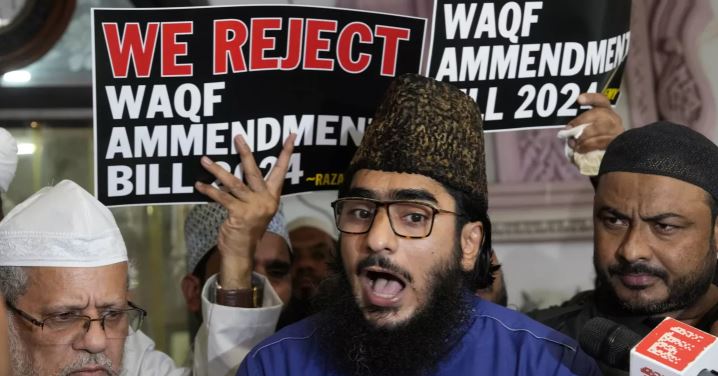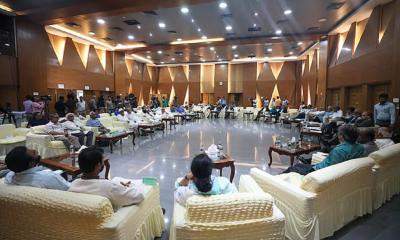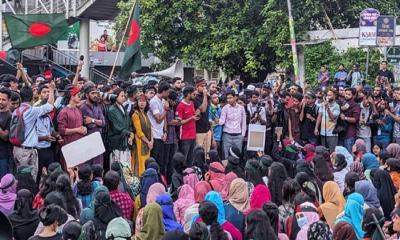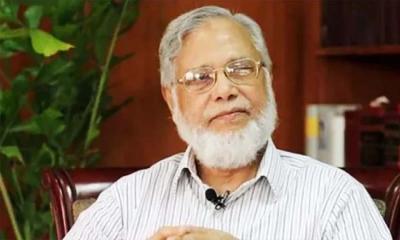India’s parliament has passed a contentious bill proposed by Prime Minister Narendra Modi’s Hindu nationalist government, introducing amendments to laws regulating Muslim land endowments, despite strong opposition from Muslim groups and political opponents, reports UNB.
The legislation mandates the inclusion of non-Muslims in the boards that oversee waqf properties and grants the government a larger role in verifying land ownership. The government argues that these measures will improve transparency and combat corruption, while critics fear they will weaken Muslim minority rights and could lead to the seizure of historic mosques and other waqf properties.
The bill sparked intense debate in both houses of parliament. The Lower House deliberated from Wednesday into early Thursday, while discussions in the Upper House extended for over 16 hours into early Friday.
The Congress-led opposition strongly opposed the bill, deeming it unconstitutional and discriminatory against Muslims. While Modi’s Bharatiya Janata Party (BJP) lacks a majority in the Lower House, its allied parties secured enough support to pass the bill.
The legislation was approved with 288 votes in favor and 232 against in the Lower House, while in the Upper House, it passed with 128 votes for and 95 against. The bill now awaits President Droupadi Murmu’s approval before becoming law.
Changes to Waqf Management
Introduced by Minority Affairs Minister Kiren Rijiju, the bill seeks to amend a 1995 law that established rules for waqf administration and state-level boards overseeing endowments.
Muslim organizations and opposition parties argue that the amendments are politically motivated and intended to diminish minority rights. The bill was first introduced last year, and opposition leaders claim their proposed revisions were disregarded. The government, however, accuses opponents of spreading misinformation to obstruct transparency in managing waqf properties.
Understanding Waqf
A waqf is a traditional Islamic charitable endowment in which a donor permanently dedicates property—often real estate—for religious or charitable use. Once established, these properties cannot be sold or transferred.
India’s waqf system manages approximately 872,000 properties spanning 405,000 hectares (1 million acres) with an estimated worth of $14.22 billion. Many waqf properties, dating back centuries, serve as mosques, seminaries, graveyards, and orphanages.
Impact on Waqf Governance
Currently, waqf properties are managed by state and federally regulated boards composed exclusively of Muslims, similar to other religious charitable organizations. The new law would require non-Muslims to be appointed to these boards.
During parliamentary discussions, Home Minister Amit Shah clarified that non-Muslim board members would be involved solely in administrative tasks to ensure compliance with legal and financial regulations. He asserted that their role would not extend to religious matters.
However, organizations such as the All India Muslim Personal Law Board argue that allowing non-Muslims to govern waqf affairs contradicts Islamic principles. The board condemned the bill as a “direct violation of Muslim citizens’ constitutional rights” and urged public demonstrations against it.
Congress President Mallikarjun Kharge questioned why waqf boards should accept non-Muslim members when Hindu temple trusts do not permit non-Hindus in their governing bodies.
Concerns Over Land Ownership
One of the most contentious aspects of the bill pertains to property ownership rules, which could affect historical mosques, shrines, and graveyards, particularly those lacking formal legal documentation due to their establishment centuries ago.
Hindu nationalist groups have long claimed that certain mosques were built on the ruins of Hindu temples, leading to multiple legal disputes. The new law would require waqf boards to obtain approval from district officials to validate property claims.
Critics argue that this requirement could diminish the waqf board’s authority, potentially stripping Muslims of their land holdings. However, the frequency with which such claims would be reassessed remains unclear.
Rahul Gandhi, leader of the main opposition Congress party, condemned the bill as a tool for “marginalizing Muslims” and undermining their property rights. He warned that it sets a dangerous precedent that could be used against other communities in the future.
Muslim Fears and Broader Implications
While many within the Muslim community acknowledge issues of corruption and mismanagement in waqf administration, they worry that the new law will grant the government excessive control over Muslim assets. Concerns are heightened by an increase in anti-Muslim rhetoric and violence under Modi’s leadership, with minorities often targeted for their cultural and religious practices.
A recent report by the U.S. Commission on International Religious Freedom highlighted worsening religious freedom conditions in India, citing anti-Muslim rhetoric and disinformation spread by Modi’s party during the last election campaign.
Despite these concerns, Modi’s government maintains that India operates on democratic principles of equality and insists there is no institutional discrimination.
Muslims, who constitute 14% of India’s 1.4 billion people, are the country’s largest religious minority but also among the most economically disadvantaged, as highlighted by a 2013 government report.






































